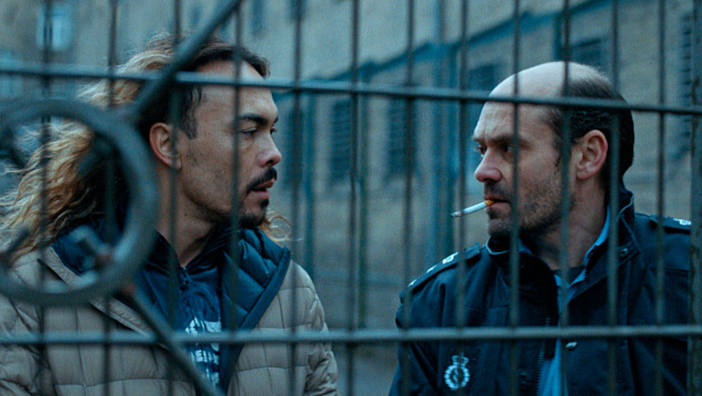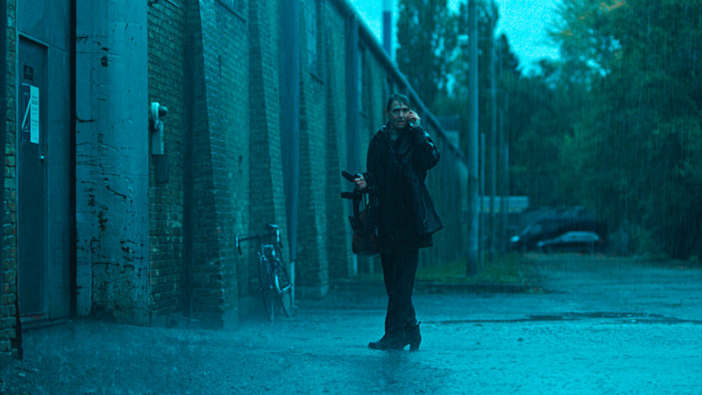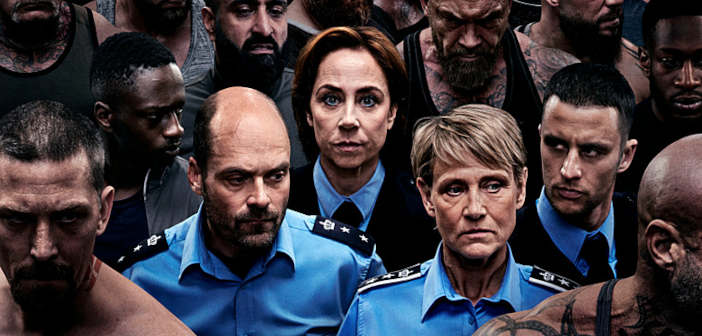Back in the day when films were rated ‘U’ (child) to ‘X’ (over 16), I used to, as regularly as possible, duck out of school sports on a Wednesday afternoon and head to the local movie house. Audiences in the afternoons were pretty thin on the ground, so first by standing on tiptoe to buy the ticket, then to sit on my school satchel to avoid an auditorium challenge from a lady with a torch, I joined the world of adult entertainment. The first double-bill, a cracker, was Crime on the Streets, supporting Riot in Cell Block 11. I emerged goggle-eyed, swimming in the visions of a young Donald Siegel. I noticed his name on the credits and probably my worship of the director began right there, in the environs of post-war Crystal Palace, sitting in a slightly elevated position within the stalls of the infamous Century Cinema, Upper Norwood.
Riot in Cell Block 11, although strictly speaking a ‘B’ feature, usually with secondary billing, was noticed quickly for Siegel’s astonishing command of violent scenarios (right up to and including his masterpiece, Dirty Harry). But this early work uncovered a social problem of violence and intimidation within prisons, as well as the prison system itself. These elements have been embedded in films set in institutions ever since (One Flew Over the Cuckoo’s Nest right through to the one which will never be topped, The Shawshank Redemption).

Ever after, television has tried to catch up with film, spawning such shows as Oz, Prison Break, and Orange is the New Black, for it recognises the shared elements with prison-set films: a contained, claustrophobic environment allowing us to focus closely on individual characters and their characterisations; and to watch them in extreme circumstances and identify strongly with both the good, the bad and invariably, the ugly. In fact, such a contained location brings film and TV closer, dealing with these themes, to one of the great immovable elements of theatre, that you cannot escape the four walls.
Without pre-warning, I caught the first two episodes on BBC4 last Saturday night, of a new Scandinavian prison drama, Prisoner, and who better to tackle such a bleak subject as the doleful Danes, they of The Killing, The Bridge and Borgen. All with those desaturated colours, hopeless weathers and a succession of great actors seeming to be in need of much more love and attention than their parts ever offer to them.

And lo! as if by magic there appears the majestic Sofie Grabol, yes, she of The Killing (with THAT sweater) but now, can one believe, playing a potential grandmother! Here she commands the role of a compassionate prison guard with a wayward son, who is about to become an early father, but is still in hock to a local mafia boss. The location means that it is not by any means a gradual process to get to know both inmates and staff for the camera thrusts us into tiny cells, close to sweating and often bloodied bodies, then out to the yard where tennis balls full of hash are regularly lobbed over the walls. Our introduction to life in a prison seems as immediate as if we were tossed into it ourselves. Which of course is the whole point of the series.
Here the two main characters are Sofie and a rookie new guard (played disarmingly by Youssef Wayne), she world-weary, trying to hold violence and corruption at arm’s length, him appalled at what he quickly encounters. In the first two excellent episodes they seem to be waltzing around each other, but I feel they have some kind of future together, although I suspect not of a romantic kind.
And here the shock for me, simply as a viewer and let’s face it, fan, is to see Sofie Grabol now embracing a middle-aged character, and she succeeds triumphantly in bringing to this new, award-winning role, a gravitas and strength which I’m sure will guarantee her appearance in many more Danish dramas yet to be conceived. In the meantime, do catch this one.
Prisoner continues on Saturday 2nd March on BBC4, and is available to stream on iPlayer.
Images copyright Adam Wallensten / BBC Pictures.




